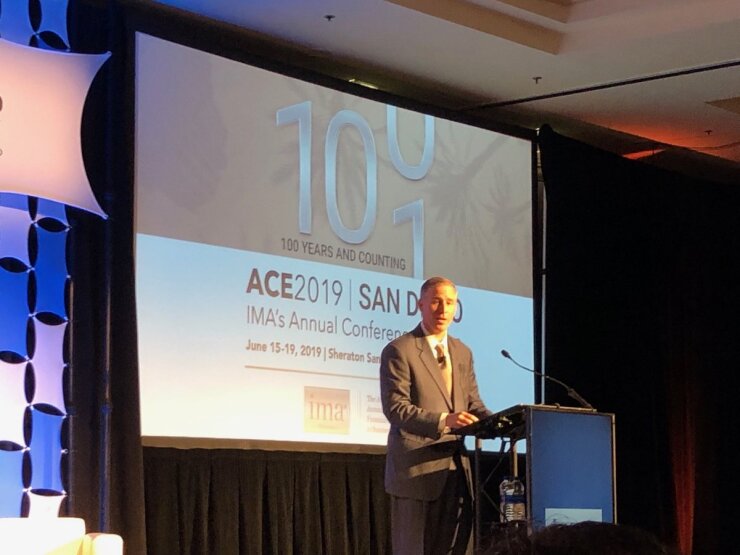The Financial Accounting Standards Board advanced an initiative to offer accounting relief for companies and organizations that need to modify their contracts as financial institutions move the global reference rates for loans, leases and other items from the London Interbank Offered Rate (LIBOR) to the Secured Overnight Financing Rate (SOFR).
FASB tentatively decided Wednesday that for a contract that meets certain criteria, a change in that contract’s reference interest rate would be accounted for as a continuation of that contract rather than the creation of a new contract. This decision applies to loans, debt, leases and other arrangements.
“Reference rate reform is a top priority for the board, and we’re committed to ensuring standards help stakeholders successfully adapt to the changes ahead,” said FASB chairman Russell Golden in a statement Wednesday. “Today’s decisions will ease, from an accounting standpoint, the transition to a new reference rate for all organizations, thereby reducing accounting cost and complexity.”

Trillions of dollars in loans, derivatives and other financial contracts make reference to LIBOR, the benchmark interest rate used by banks to make short-terms loans to each other. As a result, their related cash flows are tied to that rate.
A scandal erupted in 2012 after the Financial Times reported that several of the largest banks had been manipulating the LIBOR rate for decades, prompting reforms in how the rates are set. Global capital markets are expected to move away from LIBOR to more transaction-based reference rates, and FASB has initiated a broad project to address potential the accounting concerns expected to arise from the transition. Late last year, FASB added SOFR as a permissible benchmark rate for hedge accounting purposes. FASB plans to discuss other hedging-specific reference rate issues at a public meeting next month.
“With the impending reference rate change away from LIBOR, the FASB has begun to consider its impact on accounting standards,” Golden told an audience of accountants during a speech Tuesday at the Institute of Management Accountants conference in San Diego. “We’ve already amended the hedging standard to include SOFR as a permissible benchmark rate and intend to stay ahead of any new developments. This project will generate more proposals where — surprise! — we’ll need your input.”
For more information on the project,





